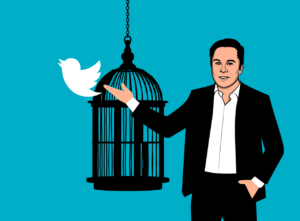Are We Truly Prepared for Generative AI?

We’ve been postponing covering ChatGPT as it is still relatively early days, although elements of it – re AI – have been there for quite some time. OpenAI’s ChatGPT is a definite disruptor, even more than Facebook was in its day, when it heralded the Age of Social, but this time, sans Mark Zuckerberg’s ego and/or iron-fisted control. Yet, or as far as we know. But when was the last time we stopped and considered the dystopian side of the shiny new thing before we realized that, say, our privacy and personal data would be gone, perhaps forever, or worse, thanks to, say, a communications assist?
As a writer, we will tell you that, while AI may correct our typos, since we key so quickly, great. As for its grammatical suggestions or recommendations for completing a sentence or thought? AI is clearly not an original thinker and is wrong 90+% of the time – without exaggeration.








